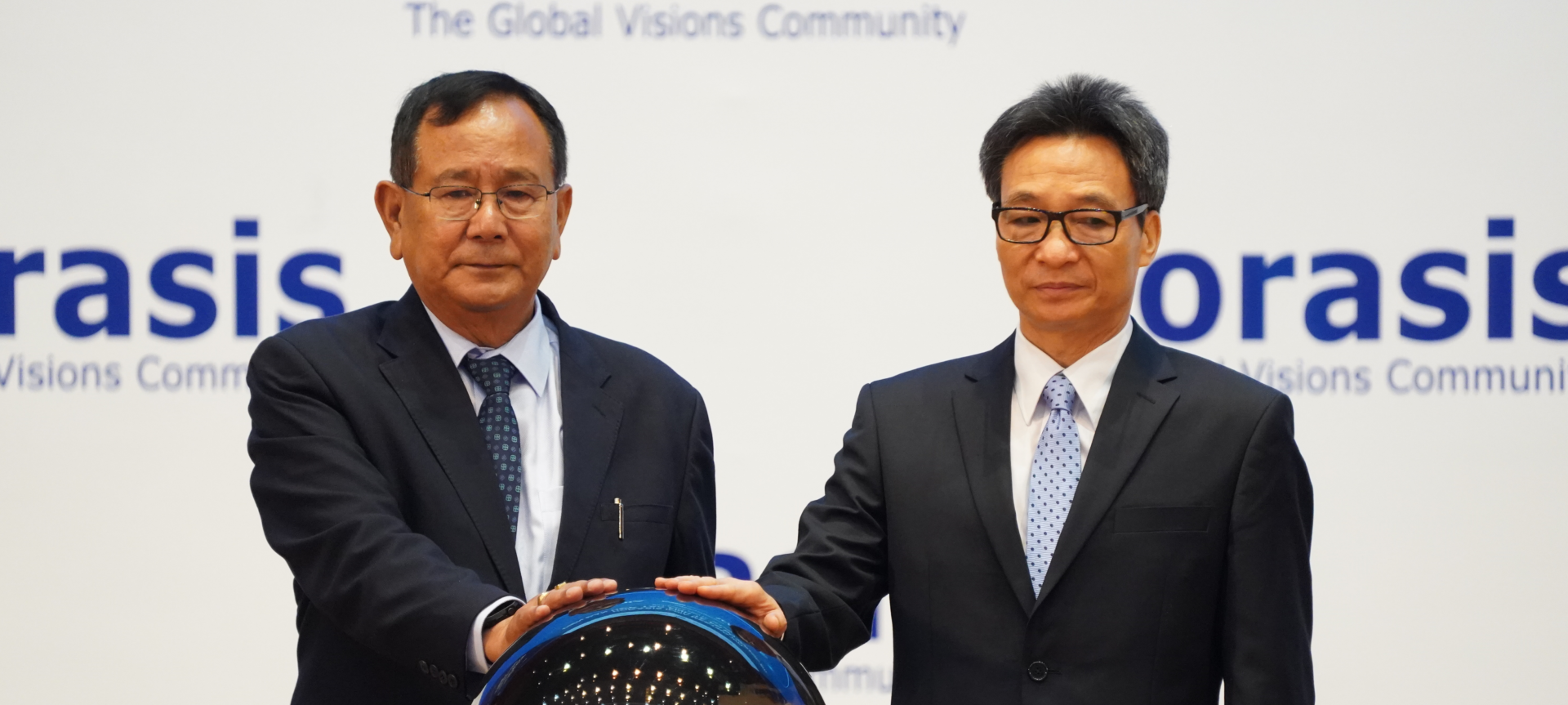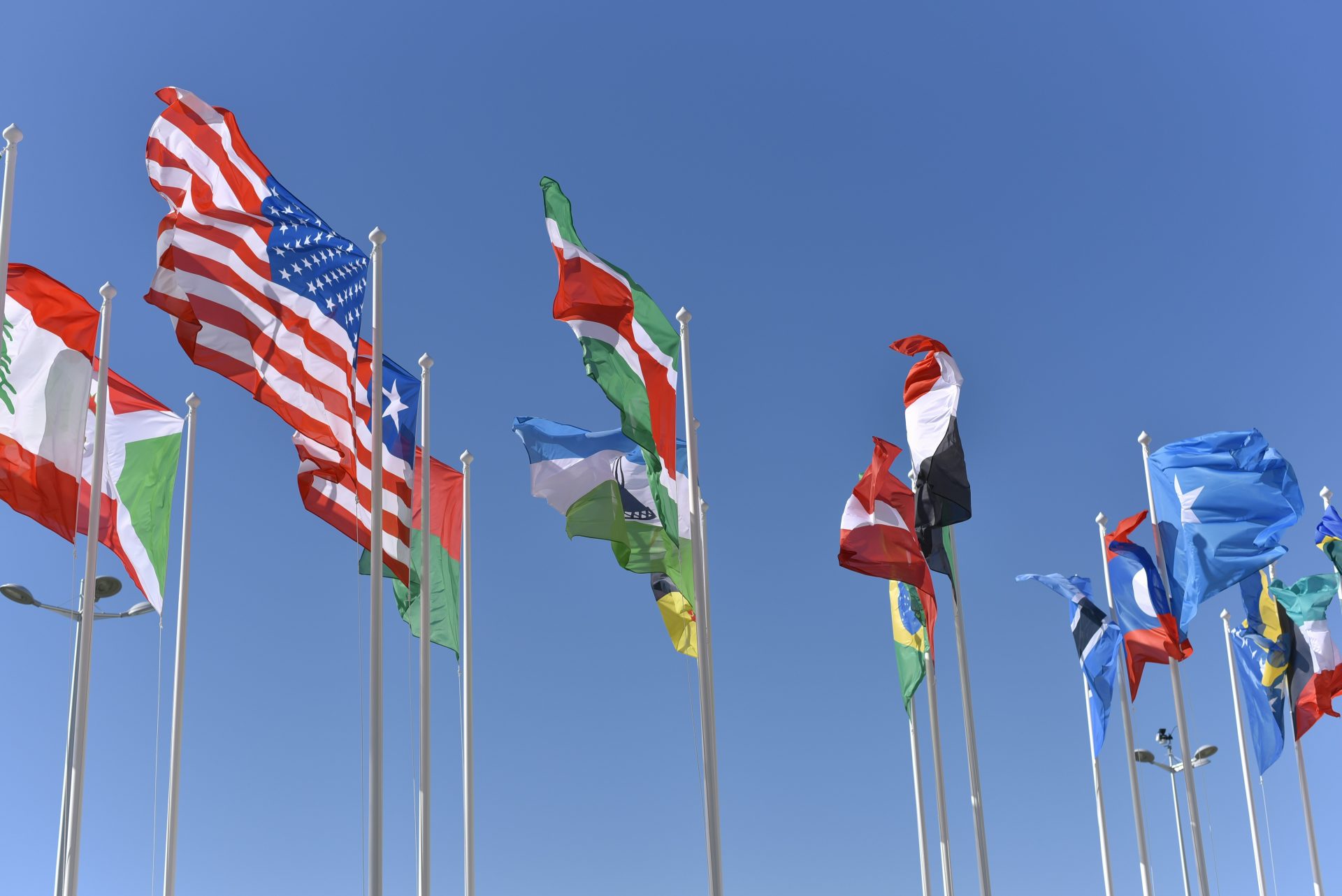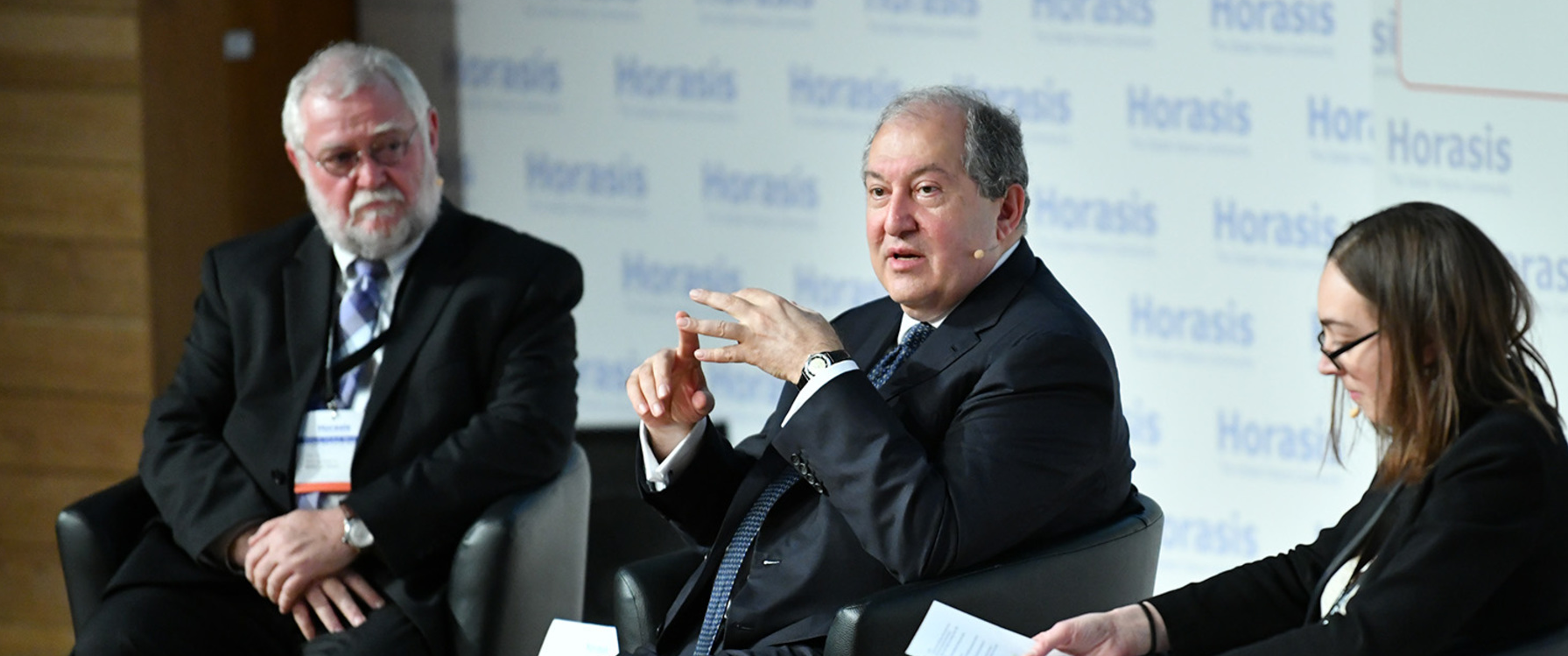Horasis India Meeting 2022 – Report
Horasis convened its annual Horasis India Meeting in Binh Duong New City, Vietnam over 25-26 September – co-hosted by Binh Duong Province, Becamex IDC and the Confederation of Indian Industry (CII). The meeting assembled over 500 members of state and regional governments of India and Vietnam and global CEOs who together with the most senior members of the Horasis community discussed India’s future within six plenaries, 26 panel discussions, and informal meetings. Among the topics, delegates debated how Vietnam might better act as a hub for India’s expansion into Southeast Asia noting how its own strong development has placed it to play an important role in connecting itself and India with other parts of Asia.
This 14th Indian business meeting was held during unprecedented global turmoil; it is to be hoped that the many conflicts are quickly ameliorated. Vietnam and Binh Duong Province in particular are to be commended for hosting the meeting Vo Van Minh, Chairman of Binh Duong Province, Vietnam welcomed participants during the Welcome Reception.
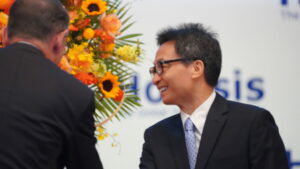
Le Minh Khai, Deputy Prime Minister, Vietnam
Le Minh Khai, Deputy Prime Minister of Vietnam reviewed the progress in the bilateral relations between Vietnam and India. Vietnam remains an important pillar in India’s ‘Act East Policy’ and the ‘Indo Pacific Vision’. He also said that Vietnam’s open economy was exposed to external risks though the country’s gross domestic product (GDP) growth was expected to exceed 6.8 per cent this year, backed by robust exports and foreign investment. The country aims to keep inflation below 4 per cent next year. And Vietnam’s foreign exchange reserves had reached a record high of US$73 billion. Even so, the country’s pace of privatization of state-owned enterprises and pace of budget spending on infrastructure had been slower than expected.
Indian Minister of State for External Affairs Rajkumar Ranjan Singh talking about Prime Minister Modi’s vision of ‘Aatma-Nirbhar Bharat’ highlighted the strides made by India on its way to achieve the target of making India USD 5 trillion economy. He welcomed the participating business leaders to join in and benefit from India’s growth story.
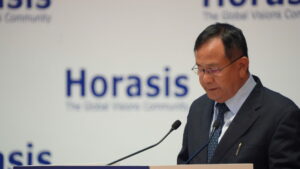
Rajkumar Ranjan Singh, Minister of State for External Affairs, India
The minister noted that over the past 50 years, the relationship between India and Vietnam has developed very well, and has the potential for further growth. For instance, the continued development of economic prosperity as business and cultural relations developed over time. In particular, said that India is open in its investment in and cooperation with Vietnam in general, and Binh Duong province in particular. He appreciated the socio-economic achievements gained by this southern province in recent years, believing that Binh Duong is a good destination for Indian investors and has potential to develop further.
During the meeting, the business managers of Becamex signed a memorandum of cooperation with the Industrial Federation of India to explore greater innovation and sustainable development.
Speakers on the Opening Plenary noted there was a slight economic recovery in 2021. But now the economies of the EU are stretched and likely to be in recession in weeks. India, on the other hand with a GDP of $3.53 trillion is the world’s fifth-largest economy (IMF, 2022) though it is classed as a middle-income developing market economy. The country has one of the highest GDP growth rates in the world likely grow by 8-8.5% in FY22, according to its 2021-22 Economic Survey; but Fitch, a ratings agency, has lowered its forecast to 7 percent for fiscal 2022 because of inflation, driven by food and fuel costs exacerbated by changing dietary patterns – the consumption of higher cost meat, fish and milk.
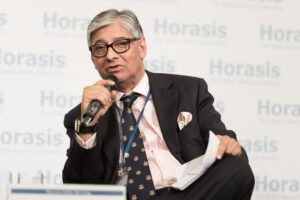
Rajive Kaul, Chairman, Nicco Group_ former President, CII, India
Vietnam’s economy is expected to grow by 7.2% in 2022, on the back of a strong rebound in domestic demand and continued solid performance by export-oriented manufacturing. The Opening Plenary was chaired by Rajive Kaul, Chairman, Nicco Group; former President, CII, India with Shrinivas Dempo, Chairman, Dempo Group of Companies; President, AIMA, India; Anuj Kacker, Executive Director and President, Aptech, India; Lakshmi Prasad, Managing Director, Sujay Biotech, India and Van Dang, Founder and Chief Executive Officer, Savvycom, Vietnam serving as panelists.
Pranjal Sharma, Contributing Editor, Business Standard, India described Globalization over three factors – economic, political, cultural – and increasingly by ecological measures. Once international trade was slow and over land, but extensive – stretching from the Atlantic east to the Pacific. In a plenary panel entitled Are we Entering a New Era of Deglobalization? panelists Can Van Luc, President, BIDV Training and Research Institute, Vietnam; Nasser Munjee, Chairman, Tata Motor Finance, India; Inderdeep Singh, Managing Director, Continental Devices India, India and Vo Xuan Vinh, Professor, University of Economics, Ho Chi Minh City, Vietnam considered globalization to be of great benefit to economies and societies as ideas, meanings and values are diffused globally. But tied in are political mantra which have given rise to the present isolationism and inwards looking changes demanding a reshoring of goods that had been off-shored through globalization. This change has been accelerated by the fear of the COVID pandemic and the growth of nationalism, trade sanctions and global conflicts. International trade volumes have fallen.
Even before COVID-19 disrupted businesses and society, the Environmental, Social and Governance (ESG) movement was gaining momentum. Pressing challenges such as climate change and economic inclusion are accelerating the ESG adoption as organizations transform their businesses to become truly sustainable and gain competitive advantage. Speakers on the plenary The ESG Conundrum discussed how important ESG is today – how to measure its success. The session was chaired by Girish Ramachandran, President – Asia Pacific, Tata Consultancy Services, Singapore with Himanshu Gulati, Member of Parliament, Norway; Nguyen Thu Hien, Professor of Industrial Management, HCM University of Technology, Vietnam; Rajeev Peshawaria, Chief Executive Officer, Stewardship Asia Centre, Singapore and Michael Sharpe, National Director, Australian Advanced Manufacturing Growth Centre, Australia serving as panelists.
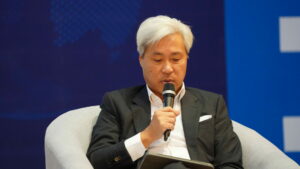
Don Lam, Chief Executive Officer and Founding Partner, VinaCapital, Vietnam
The global economic growth expectations for the current year are nearly half the growth last year and the medium-term outlook offers no comfort. India and Vietnam are among the bright spots in a generally dismal global economic outlook. Panelists of the session on Global Economic Outlook asked: What can India and Vietnam do to protect their GDP growth from the inflation shock and consolidate their gains from the shifts in global supply chains? What can India do to insulate its economic rebound from an inflation shock? The session was chaired by Vikram Chandra, Founder, Editorji Technologies, India. Speakers: Johan Nyvene, Chairman, Ho Chi Minh City Securities Corporation, Vietnam; Sudhir Jalan, Co-Chairman, Rieter India, India; JS Juneja, Chairman, Global Projects & Services, India; Don Lam, Chief Executive Officer and Founding Partner, VinaCapital, Vietnam. The session was introduced by Rekha Sethi, Director General, All India Management Association (AIMA), India.
In a plenary entitled Ensuring Growth via Sustainable Development. Pranjal Sharma, Contributing Editor, Business Standard, India asked which economic development model will allow greatest inclusive growth. Panelists Claude Béglé, Chairman, SymbioSwiss, Switzerland; Vishnu Narayan, Director, Ceyenar Chemicals, India; Nguyen Quang Huan, Chairman, Halcom, Vietnam and Vinod Sekhar, Chairman and Group Chief Executive Officer, Petra Group, Malaysia agreed that economic growth has to go along with an equally high rate of poverty reduction and fulfilling agreed SDGs. Poverty reduction planning began from a low base, but digitizing – especially of agriculture – is rapidly helping growth.
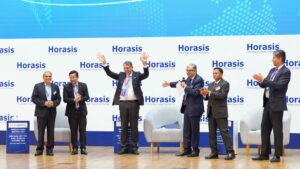
Closing Plenary Panel
The closing plenary was on India and Vietnam pivoting towards global roles. India has a long history as an Asian pivot, a point around which Asian ideas and trade have revolved and developed. Vietnam’s strong position is relatively new and determined by clear government initiatives. Both are buoyant post-COVID, being furiously entrepreneurial and innovative.
Huynh Quang Hai, Vice Chairman, VSIP Group, Vietnam spoke of the amazing Vietnam-India relation despite the much lower population of Vietnam. According to Hai, the Horasis India Meeting 2022 opens up the chance for Binh Duong and Vietnam to attract investments from Indian enterprises. Murat Seitnepesov, Chairman, Integral Group, Switzerland advised Vietnam and India to stay focused on economic development while avoiding political conflicts by engaging in neutral approaches with a readiness to address any setbacks and particular promotion of mutual supplemental strengths of the two nations.
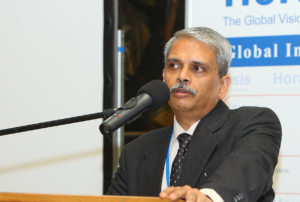
Kris Gopalakrishnan, Chairman, Axilor Ventures, India
Kris Gopalakrishnan, Chairman, Axilor Ventures, India believed that Vietnam, for the time to come, would hold a vital role of rapid development and sustainable developmental target. • B Thiagarajan, Managing Director, Blue Star Limited, India opined that the Horasis India Meeting 2022 was a chance for intensive cooperation and coordination for accompanied emergence as the leading economies in the new era. Concluding the session, Rajive Kaul, Chairman, Nicco Group; former President, CII, India thanked local leaders and Becamex IDC for their warm reception and hoped that Binh Duong would practice further coordination with Horasis for future meetings.
The Closing Dinner was on India and Vietnam joining forces to trigger new growth initiatives. Both countries are strategic partners with deep economic relations and numerous common interests. What efforts need to be undertaken to further develop this partnership? How can Vietnamese and Indian firms partner to forge enhanced growth initiatives? Vo Van Minh, Chairman of Binh Duong Province, Vietnam said that with 29 industrial parks and 12 industrial clusters, the province has attracted more than 4,000 foreign direct investment projects with total capital of nearly US$40 billion from 65 countries and territories. The province has become the second-largest locality in the country in terms of foreign investment attraction, just behind Ho Chi Minh City. Nguyen Van Loi, Secretary of the Provincial Party Committee, Binh Duong, Vietnam affirmed that Binh Duong will create the best conditions for the connection and exchange between businesses and managers to be effective. He said that the Horasis India Meeting is an opportunity for organizations in Vietnam in general and Binh Duong in particular to access new knowledge and visions, grasp the trends and to build and develop socio-economically.
The 14th Horasis India Meeting has illustrated how cooperation between the host nation, Vietnam, and India is developing synergies for the future. The Horasis Global Community looks forward to maintaining a global impetus to solving future problems and developing future harmonies.
Featured photo of Vietnam Deputy Prime Minister Le Minh Khai and India Minister of State for External Affairs and Education Rajkumar Ranjan Singh

